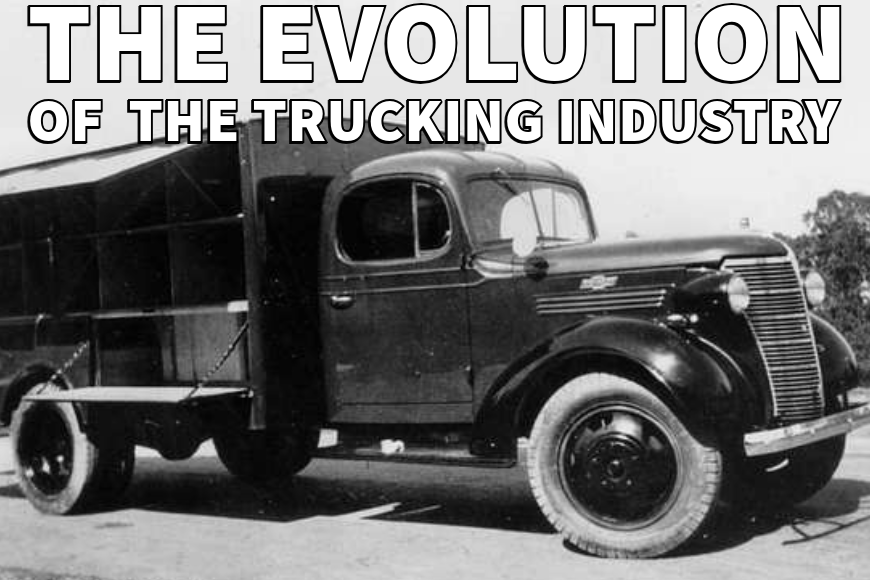- September 5, 2024
- By Tess
- In trucking industry
- Tags trucking industry
- 596
- 0

The evolution of trucks is a story of innovation and progress. From simple wagons to the sophisticated eighteen-wheelers of today, the trucking industry has played a pivotal role in shaping the economic landscape, facilitating trade and commerce by connecting producers and markets across vast distances. This blog takes a look into the historical milestones of trucking and highlights how each phase has contributed to the industry’s current state.
The history of trucks begins in the late 19th century, when the first motorized vehicles emerged. These early trucks were often modified versions of farm wagons, equipped with engines and simple transmissions. They were primarily used for local deliveries of goods like coal, milk, and industrial materials.
The introduction of the internal combustion engine was a significant breakthrough, providing trucks with the necessary power to handle heavier loads and travel longer distances. This period also saw the development of pneumatic tires, which significantly improved the handling and durability of trucks.
Trucks gained global importance during the World Wars, where they were crucial in logistics, moving troops, and supplies. The wars accelerated technological advancements in truck design and engine performance, demonstrating the vehicle’s indispensable role in modern warfare and peacetime economies.
The post-war era marked a significant growth phase for the trucking industry, highlighted by the development of the Interstate Highway System in the United States during the 1950s. This network of highways revolutionized transportation, allowing for faster, more efficient delivery of goods across the country.
By the late 20th century, diesel engines had become standard in the trucking industry due to their durability and efficiency. The shift to diesel power helped trucks transport heavier loads over longer distances, further enhancing their utility in global trade.
Today, the trucking industry continues to innovate with the introduction of electric trucks, autonomous driving technology, and advanced logistics software. These innovations promise to make trucking more efficient and sustainable, reducing the industry’s carbon footprint and improving safety on the roads.
With growing awareness of environmental issues, the trucking industry faces significant regulatory challenges. Modern trucks are equipped with emissions-reducing technology, and the move towards alternative fuel sources like electric and hydrogen cells is gaining momentum.
The evolution of trucks, and the trucking industry as a whole, is a testament to human ingenuity and the relentless pursuit of efficiency and effectiveness in transportation. As we look towards the future, the industry is poised for even greater transformations, driven by technology and sustainability. At Beyer Motorsports, we celebrate the rich history of trucking and look forward to being part of its exciting future.





